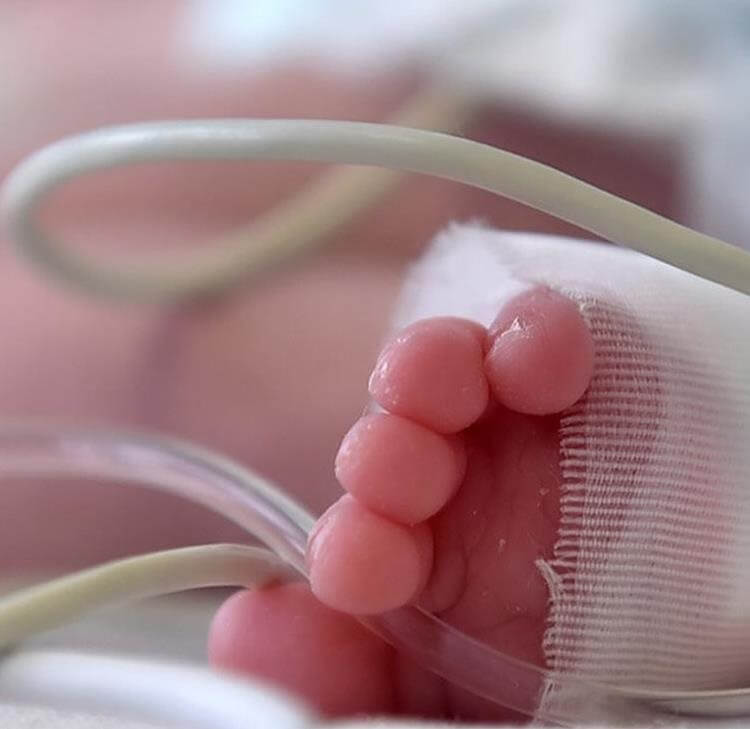In conversation with...Sian Brown: NHS Resolution’s Early Notification Scheme
Sian Brown is one of Browne Jacobson’s Partners and the head of the Early Notification Team. Find out more about Sian here.
Sian Brown is one of Browne Jacobson’s Partners and the head of our Early Maternity Team. The team focuses primarily on supporting the work carried out by NHS Resolution’s Early Notification Team, but also helps Trusts with investigations into cases where babies have died, many of which result in inquests; or where women have suffered severe injuries as a result of childbirth.
She undertook her training contract in 2005 before qualifying into the clinical negligence team in 2007. She has had a short break to experience life from the Claimant’s perspective and has also worked within an NHS Trust to help improve patient safety before returning to the firm in 2017.
What is NHS Resolution’s Early Notification Scheme?
The Early Notification Scheme is a national programme run by NHS Resolution allowing for the early reporting and investigation of cases in order to provide families with early explanations of incidents, fair resolution and highlighting lessons that can be learned. It reflects the Government’s goal of halving the rates of stillbirth, neonatal death and brain injuries associated with obstetric delivery.
Why is this scheme so important?
Historically, resolution of claims relating to birth injury often took a significant time because of the nature of the investigations needed to determine the cause and extent of injury prior to a claimant bringing a claim. This meant that families could be left without support during the early crucial years and made investigation of such incidents difficult, as staff may have moved away or memories may have faded. The introduction of the scheme has led to early admissions of liability, where appropriate, within 18 months of the birth, and enabled support to be provided to families when they need it the most.
What is the benefit to the NHS?
One of Sian’s key passions about the scheme is how it can really make a difference in driving improvements within NHS Trusts to help prevent future incidents. Through the Early Maternity Team’s work with NHS Resolution’s Early Notification Team they identified that a Trust’s electronic records system was generating an incorrect risk factor for advising mothers of the success rate of a VBAC (vaginal birth after Caesarean section). With their input and recommendations, this system was then changed to ensure that consent is accurately recorded and that the risks are personalised for the mother, improving the quality of the care provided to each patient. The Early Maternity team has also worked with another Trust to change its consent forms to better explain about the manoeuvres that might be required for shoulder dystocia, improving the understanding of all patients in that Trust. Without the devoted work of Sian’s team supporting NHS Resolution it might have been several years before these changes were identified.
What is the future for the Early Notification Scheme?
Sian and her team are strong advocates of the benefits of NHS Resolution’s Early Notification Scheme and believe that its unique model can be used to help drive early resolution and costs savings. By implementing early investigation of incidents, the evidence is fresh in people’s minds, and full and open conversations can be had with patients and their families about the care provided.
Obviously, such a scheme is not without its challenges. By breaking away from traditional models of case management, this has involved a significant change in mindset within the team. But by promoting innovative thinking in the way cases are handled, with NHS Resolution and other panel firms, Sian and her team have been able to disrupt the sometimes formulaic and lengthy pathway from incident to a settlement.
When not running the Early Maternity Team, Sian can be found in the country surrounded by her two boys, horses, dogs and mud.
Related expertise
You may be interested in...
Opinion - Maternity services
University Hospital Leicester hold their inaugural Maternity Safety Conference
In Person Event
Navigating your way through high profile sensitive reviews and investigations
Opinion
Junior doctors vote unanimously in favour of strike action
Opinion
Can toilet facilities amount to sex discrimination?
Published Article
Digital Twin Technologies: key legal contractual considerations
Opinion
Consultation launched on minimum ambulance service levels during strike action
Opinion - Maternity services
Changes to redundancy protections for employees post-maternity leave
Legal Update - Shared Insights
Shared Insights: Coroners’ Question Time
Press Release - Careers
Browne Jacobson health lawyer wins major accolade at Made in Manchester Awards
Opinion
BMA issues medical locum rate card for junior doctors
Legal Update
Employee who refused to wear a face mask fairly dismissed
Opinion
New toolkit to support safer recruitment in the care sector
Legal Update
Green Leases for the NHS
Guide
Government response to the consultation on the Higher-Risk Buildings Regulations
Published Article
The first 100 days for Integrated Care Boards
Opinion
Menopause and the workplace
On-Demand
Future of Care - Retirement Living webinar
In Person Event
Independent Healthcare In-House Lawyers Forum
Opinion
Government introduces new “anti-striking laws” to be discussed in Parliament
Press Release - Maternity services
Father Christmas comes to University Hospital Coventry and Warwickshire care of Browne Jacobson’s Birmingham Office Community Action Group
Opinion - Maternity services
The Patient Safety Incident Response Framework (PSIRF) and its impact on maternity services
Legal Update - Shared Insights
Shared Insights: Looking ahead to 2023 – what Health and Care employers need to know
Opinion
Coroner’s refusal to issue a Prevention of Future Deaths Report following death in prison custody inquest was lawful
Article
Mental health, eating disorders and placement of young people
Legal Update
LPS consultation and ‘go live’ planning
Opinion
Consultation launched on plans to amend NHS pension rules to bolster NHS workforce
Legal Update
Getting ready to face Industrial Action
Legal Update - Shared Insights
Shared Insights: Prolonged disorders of consciousness
Published Article
How AI and technology can transform the healthcare sector
On-Demand
The UK's green agenda - the outcomes of COP27 and actions since COP26
On-Demand
Insights from the Chief Coroner by His Honour Judge Thomas Teague, KC
Opinion
BMA advises consultants not to accept less than the BMA minimum rate card for extra-contractual work
The BMA is advising all NHS / HSCNI consultants to ensure extra-contractual work is paid at the BMA minimum recommended rate and to decline offers of extra-contractual work that doesn't value them appropriately.
On-Demand
Leadership and lessons learnt during the Pandemic by Professor Jonathan Van-Tam
Legal Update - Shared Insights
Shared Insights: The Patient Safety Incident Response Framework
Guide - Maternity services
Mediation guide for Clinicians: What do you need to know and how do you need to prepare
Opinion
NHS England – Updated Transaction Guidance
NHS England has published (October 2022) new guidance - Assuring and supporting complex change: Statutory transactions, including mergers and acquisitions.
Opinion
NHS England – Assuring and supporting complex change
NHS England has issued an updated (publication 11 October 2022) suite of Complex Change guidance about how it will assure and support proposals for complex change that are reportable to it. New and (where it is still in force) existing Complex Change guidance are as follows.
Legal Update
The Retained EU Law
Created at the end of the Brexit transition period, Retained EU Law is a category of domestic law that consists of EU-derived legislation retained in our domestic legal framework by the European Union (Withdrawal) Act 2018. This was never intended to be a permanent arrangement as parliament promised to deal with retained EU law through the Retained EU Law (Revocation and Reform) Bill (the “Bill”).
Legal Update
Economic crime and cybercrime
It is clear that the digital landscape, often termed cyberspace, is a man-made environment, in which human behaviour dominates and where technology both influences and aids our role in it — through the internet, telecoms and networked computer systems, which are often interdependent. The extent to which any organisation is potentially vulnerable to cyber-attack depends on how well these elements are aligned.
Legal Update
Redundancy consultation and selection concerning expiry of a fixed term contract – EAT put the spotlight onto a ‘selection pool of one’
In Mogane v Bradford Teaching Hospitals NHS Foundation Trust the Employment Appeal Tribunal (EAT) considered whether it was fair to dismiss a nurse as redundant on the basis that that her fixed-term contract was due to expire before that of her colleague.
























